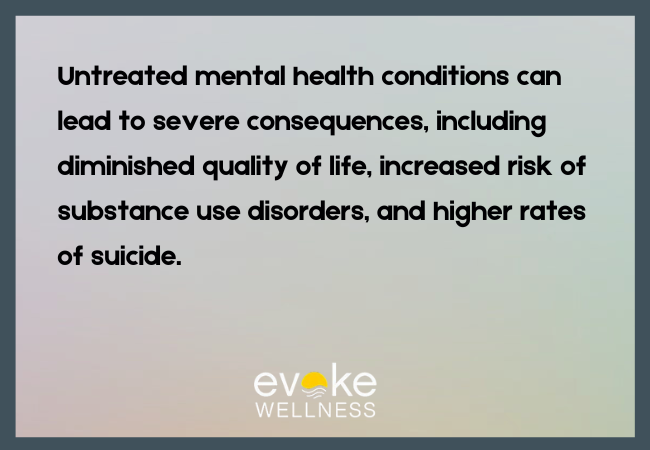Mental and emotional well-being play a crucial role in overall health, yet many people hesitate to seek help when struggling with psychological distress. Whether dealing with anxiety, depression, substance use, or other mental health challenges, recognizing when to seek professional support is essential. Knowing the signs that indicate the need for intervention can be the first step toward recovery and a healthier, more balanced life.
Ignoring behavioral health concerns can lead to serious consequences in personal relationships, work, and overall well-being. This guide explores key signs that suggest you may need professional behavioral health treatment, along with steps to take toward recovery.
Understanding Behavioral Health and Its Importance
Behavioral health refers to the connection between behaviors and overall well-being, including mental health, substance use, and emotional regulation. When behavioral health issues interfere with daily life, professional treatment can provide the necessary support, coping mechanisms, and tools for long-term recovery.
Behavioral health disorders may include:
- Anxiety disorders (Generalized Anxiety Disorder, Panic Disorder, PTSD)
- Mood disorders (Depression, Bipolar Disorder)
- Substance use disorders (Alcohol and drug addiction)
- Eating disorders (Anorexia, Bulimia, Binge Eating)
Many individuals avoid seeking help due to stigma or the misconception that they must be in crisis before reaching out. However, early intervention significantly improves outcomes and prevents conditions from worsening.
Common Signs You May Need Professional Help
Recognizing the signs of a behavioral health condition is critical. Here are some indicators that professional treatment may be necessary:
1. Persistent Feelings of Sadness, Anxiety, or Hopelessness
Experiencing occasional sadness or stress is normal, but if feelings of depression or anxiety persist for weeks or months, it could indicate a deeper issue. Symptoms to watch for include:
- Constant worry or panic attacks
- Loss of interest in previously enjoyed activities
- Frequent crying spells or overwhelming sadness
- Feelings of worthlessness or hopelessness
2. Difficulty Managing Daily Responsibilities
If mental health struggles make it challenging to complete work tasks, maintain relationships, or fulfill daily obligations, professional treatment may help restore balance. Warning signs include:
- Declining job or school performance
- Struggles with maintaining hygiene or self-care
- Trouble concentrating or making decisions
- Avoiding social interactions
3. Increased Dependence on Substances
Using alcohol, drugs, or prescription medication to cope with emotional distress can signal a behavioral health disorder. Substance use may start as an occasional escape but can quickly become a dependency. Warning signs include:
- Increased tolerance or needing more of a substance to feel the same effects
- Withdrawal symptoms when not using
- Engaging in risky behavior while under the influence
- Neglecting responsibilities due to substance use
4. Drastic Changes in Sleep Patterns
Behavioral health issues often disrupt sleep. Insomnia, excessive sleeping, or nightmares may indicate underlying emotional distress. Symptoms include:
- Trouble falling or staying asleep
- Sleeping too much or feeling fatigued despite adequate rest
- Recurring nightmares or night terrors
5. Unexplained Physical Symptoms
Mental health conditions often manifest in physical ways, including:
- Frequent headaches or migraines
- Digestive issues or stomach pain
- Muscle tension or unexplained body aches
- Rapid weight loss or gain due to appetite changes
6. Self-Harm or Suicidal Thoughts
Experiencing thoughts of self-harm, suicide, or engaging in dangerous behaviors requires immediate professional intervention. Warning signs include:
- Talking about wanting to die or harm oneself
- Giving away personal belongings
- Engaging in reckless behavior without concern for safety
7. Uncontrollable Mood Swings or Irritability
Severe mood swings, extreme anger, or irritability that impact relationships or work-life balance may indicate an underlying mental health condition. Symptoms include:
- Outbursts of anger or aggression
- Rapid shifts between emotional highs and lows
- Difficulty controlling emotions
8. Withdrawal from Friends and Family
Social isolation can be a significant red flag. Avoiding friends, family, or social situations due to anxiety, depression, or feelings of worthlessness may signal the need for help. Symptoms include:
- Canceling plans frequently
- Feeling disconnected from loved ones
- Avoiding social gatherings or work events
9. Struggling with Trauma or Past Experiences
Unresolved trauma, including childhood abuse, loss of a loved one, or witnessing a traumatic event, can lead to long-term emotional distress. Signs of unresolved trauma include:
- Flashbacks or intrusive memories
- Avoidance of reminders related to the trauma
- Difficulty trusting others
The Role of Professional Treatment
Seeking help from an addiction treatment center in Ohio or a mental health provider offers access to specialized care tailored to individual needs. Treatment options may include:
- Therapy and Counseling: Individual, group, or family therapy sessions to address emotional and behavioral challenges.
- Medication Management: Psychiatric medications may be prescribed to help manage symptoms.
- Behavioral Therapies: Approaches like cognitive-behavioral therapy Ohio (CBT) and dialectical behavior therapy Ohio (DBT) help develop coping strategies.
- Holistic Treatments: Incorporating mindfulness, meditation, and physical wellness activities to support recovery.

Why Seeking Help Matters
Ignoring behavioral health concerns can worsen symptoms, leading to severe consequences such as relationship strain, job loss, or increased risk of substance use. Early intervention improves recovery outcomes and overall quality of life.
Overcoming Stigma
One of the biggest barriers to seeking treatment is the stigma surrounding mental health and addiction. Education and open conversations can help break down misconceptions and encourage individuals to prioritize their well-being without fear of judgment.
Long-Term Benefits of Treatment
- Improved emotional regulation and coping skills
- Stronger personal and professional relationships
- Increased ability to handle stress and daily responsibilities
- Better overall physical health
Types of Behavioral Health Treatment Options
1. Individual Therapy
- Cognitive-Behavioral Therapy (CBT) – Helps identify and change negative thought patterns.
- Dialectical Behavior Therapy (DBT) – Teaches emotional regulation and coping skills.
2. Medication Management
- Antidepressants, anti-anxiety medication, or mood stabilizers may be prescribed.
- Medication is often combined with therapy for better outcomes.
3. Inpatient or Residential Treatment
- 24/7 care for severe mental health or substance use disorders.
- Structured environment with therapy, medical care, and support groups.
4. Outpatient Treatment Programs
- Intensive outpatient programs (IOPs) provide structured therapy while allowing individuals to live at home.
- Partial hospitalization programs (PHPs) offer full-day treatment without overnight stays.
5. Support Groups & Peer Support
- 12-step programs (Alcoholics Anonymous, Narcotics Anonymous) for addiction recovery.
- Mental health support groups for depression, anxiety, PTSD, and other conditions.
When to Seek Professional Help
If you identify with any of the above warning signs, it’s time to consider professional behavioral health treatment.
Who Should You Reach Out To?
- Primary care doctor – Can assess symptoms and refer you to a specialist.
- Therapist or counselor – Provides talk therapy for emotional and behavioral issues.
- Psychiatrist – Can diagnose and prescribe medication for mental health conditions.
- Rehabilitation center – For substance use and behavioral health disorders.
When to Reach Out for Help
Struggling with behavioral health challenges is not a sign of weakness. Seeking professional treatment is a powerful step toward healing and reclaiming your life. If you or a loved one is experiencing any of these warning signs, don’t hesitate to reach out for support. Help is available, and recovery is possible.
If any of the warning signs mentioned resonate with you or a loved one, reaching out to professionals like Evoke Wellness Addiction Treatment at Hilliard can provide the guidance and support needed for lasting recovery. Together, let’s embrace the journey to recovery and the promise of a new beginning. Call us at 866.430.9267 today or reach out online.
Frequently Asked Questions
How do I know if I need professional behavioral health treatment?
If your mental health symptoms interfere with daily life, relationships, or work, seeking professional guidance can help determine the right treatment plan.
Can behavioral health treatment help with substance use disorders?
Yes, many treatment centers address both mental health conditions and substance use disorders through integrated programs.
What types of therapy are available for behavioral health issues?
Common therapies include cognitive-behavioral therapy (CBT), dialectical behavior therapy (DBT), individual counseling, and group therapy.
How long does behavioral health treatment take?
The duration varies depending on the severity of symptoms and individual needs. Some programs last a few weeks, while others require ongoing care.
What should I do if a loved one needs behavioral health treatment?
Encouraging open conversations, providing emotional support, and seeking professional guidance can help a loved one access the care they need.



